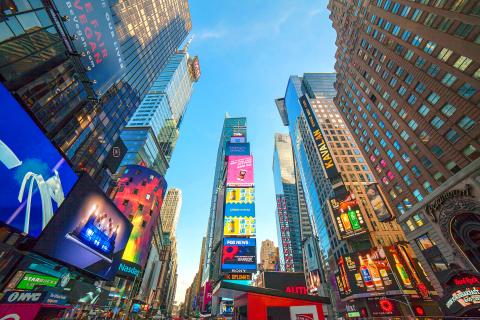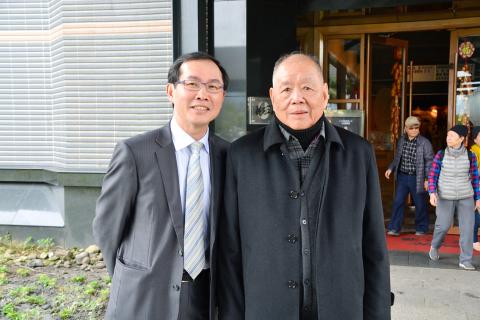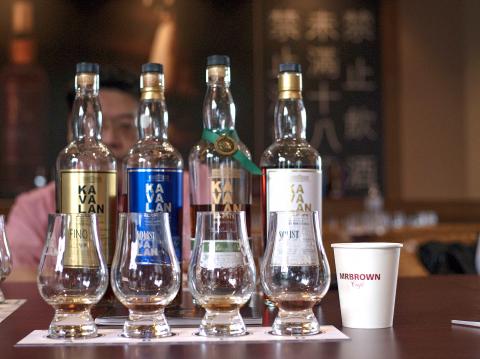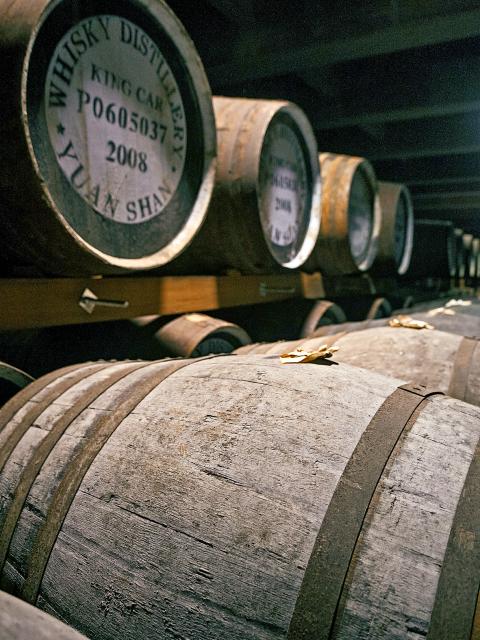Two lone customers are waiting by the free tasting area in the Kavalan distillery in Yilan County. The tasting session doesn’t start for another 10 minutes. A member of staff walks through the cordon.
“What’s here, then?” a customer asks.
“Jiu ah (酒啊),” she replies. Booze.

Photo courtesy of King Car Group
And that’s exactly what they can expect. Free tastings of some of the finest single malt whiskies known — a claim backed up by some of the world’s foremost whisky experts — proudly produced here in rural, sub-tropical Yilan.
Kavalan has picked up a total of 210 first prize awards since it started entering competitions in 2010.
The company’s Solist Amontillado Sherry — a touch of oak on the nose and a palate of soft sherry with a hint of caramel — was crowned the World’s First Single Malt Whisky Single Cask at the World Whiskies Awards (WWA) Dinner in London this year.

Photo courtesy of King Car Group
Last year, the WWA gave Kavalan’s Solist Vinho Barrique the Best Single Malt Whisky Award, officially making it the world’s best single malt whisky.
How long has it taken Kavalan whisky to scale these heady heights, and best the finest offerings of established distilleries in Scotland? Ten years.
Kavalan is the culmination of the dream of King Car Group (金車) Chairman Lee Tien-tsai (李添財) and his son, CEO Lee Yu-ting (李玉鼎). The company, established in 1979, launched the Mr. Brown Coffee (伯朗咖啡) brand in 1982 and opened the Yilan distillery in 2005. The production line was completed in only 9 months, following a viability study and the 2002 lifting of restrictions on private companies in Taiwan having their own breweries or distilleries. The company had its first Kavalan products on the market in 2008.

Photo: Taipei Times
Taiwan’s hot and humid climate, very different from that in Scotland, provides unique challenges and opportunities for Kavalan.
The yeast is imported from France, the malted barley from Scandinavia, as they cannot be grown in Taiwan; the company brought in consultants from Scotland; special whisky stills and equipment have been imported from Scotland and Germany.
Kavalan’s team of researchers, consultants, and master blender Ian Chang (張郁嵐) — who trained in England and Scotland — frequently travel abroad, to Europe and the US, in search of the best casks — sherry, port, bourbon, brandy — in which to mature Kavalan whisky. In fact, the team had just returned from Spain two days before the Taipei Times visited the plant. Old casks are simply not available in Taiwan, for the simple reason that Taiwan does not have a whisky producing tradition.

Photo: Taipei Times
Even storage presents its own set of problems, due to Taiwan’s sub-tropical climate.
But there are also definite advantages to producing whisky in Taiwan. The high temperatures allow the maturation process to happen far more quickly than it does in Scotland’s cold climate — thus far, Kavalan’s whiskies are typically left to age for four years — and the distillery has a plentiful supply of naturally-filtered spring water from the nearby Snow Mountain and the Central Mountain Range.
Spurred by its success in international competitions, Kavalan is now undertaking an ambitious expansion that will see production almost double from five million to nine million bottles a year when its latest extension is completed in December. Lee Yu-ting tells the Taipei Times that he has plans to continue expanding operations for the next 20 years.
Lee says that the main market for Kavalan is the domestic market here in Taiwan, but it sells the whisky in over 40 countries worldwide. The China market is not yet ready for premium single malt whisky, however, Lee says, and the main markets remain Europe and the US.
In fact, this year will see the company marketing its brand overseas. Earlier this year it paid for a series of advertisements in TIME and Newsweek, and has recently had its products emblazoned across a building in New York’s Times Square.
Times are looking good for the world’s first ever subtropical whisky distillery.
Warning: Excessive consumption of alcohol can damage your health.

Google unveiled an artificial intelligence tool Wednesday that its scientists said would help unravel the mysteries of the human genome — and could one day lead to new treatments for diseases. The deep learning model AlphaGenome was hailed by outside researchers as a “breakthrough” that would let scientists study and even simulate the roots of difficult-to-treat genetic diseases. While the first complete map of the human genome in 2003 “gave us the book of life, reading it remained a challenge,” Pushmeet Kohli, vice president of research at Google DeepMind, told journalists. “We have the text,” he said, which is a sequence of

On a harsh winter afternoon last month, 2,000 protesters marched and chanted slogans such as “CCP out” and “Korea for Koreans” in Seoul’s popular Gangnam District. Participants — mostly students — wore caps printed with the Chinese characters for “exterminate communism” (滅共) and held banners reading “Heaven will destroy the Chinese Communist Party” (天滅中共). During the march, Park Jun-young, the leader of the protest organizer “Free University,” a conservative youth movement, who was on a hunger strike, collapsed after delivering a speech in sub-zero temperatures and was later hospitalized. Several protesters shaved their heads at the end of the demonstration. A

In August of 1949 American journalist Darrell Berrigan toured occupied Formosa and on Aug. 13 published “Should We Grab Formosa?” in the Saturday Evening Post. Berrigan, cataloguing the numerous horrors of corruption and looting the occupying Republic of China (ROC) was inflicting on the locals, advocated outright annexation of Taiwan by the US. He contended the islanders would welcome that. Berrigan also observed that the islanders were planning another revolt, and wrote of their “island nationalism.” The US position on Taiwan was well known there, and islanders, he said, had told him of US official statements that Taiwan had not

We have reached the point where, on any given day, it has become shocking if nothing shocking is happening in the news. This is especially true of Taiwan, which is in the crosshairs of the Chinese Communist Party (CCP), uniquely vulnerable to events happening in the US and Japan and where domestic politics has turned toxic and self-destructive. There are big forces at play far beyond our ability to control them. Feelings of helplessness are no joke and can lead to serious health issues. It should come as no surprise that a Strategic Market Research report is predicting a Compound